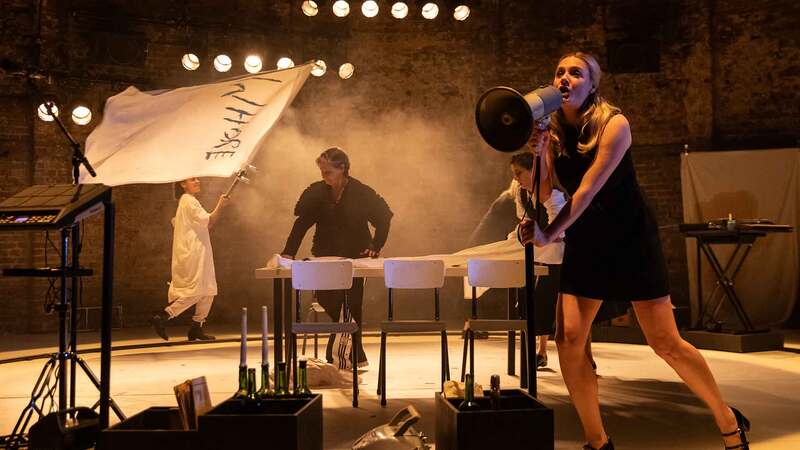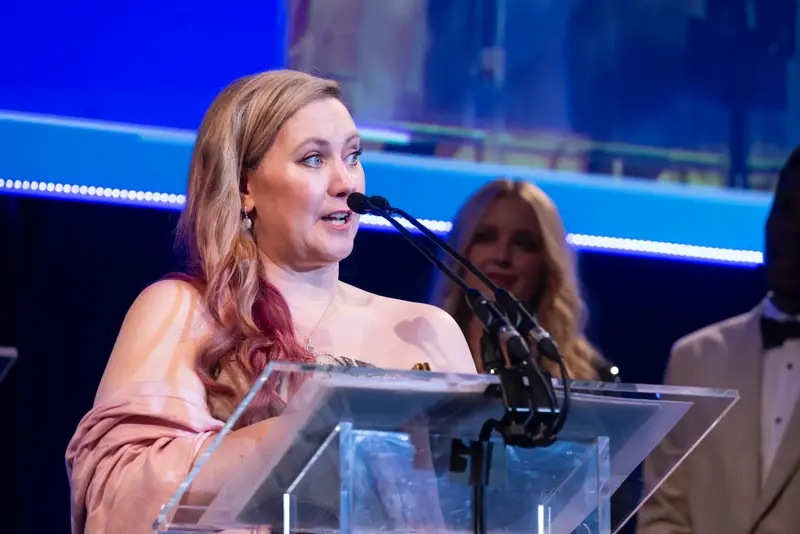You are viewing your 1 free article this month. Login to read more articles.
Thomas Keneally's Life on Mars
Thomas Keneally is perhaps most well-known for Schindler's Ark, which won the Man Booker Prize in 1982 and was later adapted by Steven Spielberg into the film Schindler's List. His latest novel, Daughters of Mars, sees Australian sisters Naomi and Sally Durance travel as nurses to Africa and Europe during the First World War. Driven on by a complicated grief over the death of their mother, the women encounter tragedy, loss, and hardship, as the scale of the conflict threatens to overcome the personal hopes and achievements of their lives.
Charlotte Williams: What was the catalyst for the book? How do you go about researching and writing?
TK: The catalyst for the book was actually the obscure histories I’ve been writing – social histories of Australian society from palaeolithic times to the present. I thought it would be interesting to look at the First World War, which bulks very large in our history, from the point of view of nurses and medical issues. I did quite a bit of reading of Australian and British sources, particularly nurse’s journals and medical histories, and the characters of the Durance sisters gradually emerged from the memoirs and histories of those extraordinary young women, whose struggle for status and fair treatment alone would have made a good novel.
I write on a laptop, but I often use for my first draft a digital recorder and create files that are then transcribed, and that transcription is what I work on then on the laptop. I find the digital recorder, which is just a first step mechanism, defeats the biggest problem – the emptiness of the page.
How would you describe your experience of writing about war? What were the challenges of depicting its reality?
I suppose I’d better come clean and say that I’m fascinated by war and its moral and physical aspects. My earliest memories from the bush town in which I then lived were of men going to war, including my father. Thus, though we then lived in Sydney, Australia, after coming down from the bush, I was only one degree of separation from Nazism, and then only one degree of separation from the advance of Japanese militarism in the Pacific. I think this fascination is contradictorily mixed with my having been involved in peace marches. I was very much ‘helped’ – if that’s the word – by my experiences in Eritrea of its largely unreported but brutal war against Ethiopia.
During a number of visits I saw the unclean and obscene wounds war really inflicts, and saw too how it was to be a nurse or doctor in the midst of savage campaigning. I think a lot of my attempts to render the human and the intimate moments amongst all this thunder and fury something that is ultimately done by intuition rather than by taking extended and formal thought. Sometimes these incidents are already there, in the journals. Of course one must transmute them and adapt them for the novel.
How do you think Daughters of Mars compares or links to any of your previous works?
The book links to previous works through my attempt to tell stories from the point of view of women (for example, The Widow and Her Hero and Woman of the Inner Sea). People tend to go gooey about the term “World War l nurse”, imagining a virginal figure in a red cape. In fact these women had an horrendous struggle, whether it was while being treated as badly-fed scullions on the island of Lemnos off Gallipoli, or being considered fit to serve in casualty clearing stations in France.
This struggle for their own dignity, and sometimes in the face of verbal and physical abuse, relates to the earlier books I mention. As for the rest, there’s an obvious connection to the Schindler book and To Asmara. This is combined with the idea of European savagery and glory, which has always fascinated us New World-ers – that as Lieutenant Condon says, from the glories of the Louvre to the front line is a maximum of only seventy miles, barely a commute in Australians terms.
You write about sisters so well. How would you compare writing about the relationship between sisters or siblings and creating romantic relationships or friendships?
I am fascinated by sisters and siblings generally by having had two daughters. The relationships between siblings is in many ways more complex than that between say Sally Durant and Lieutenant Condon, or between Naomi and the Quaker medical orderly, Kiernan, because the parents always pay a continual role in the relationship between grown children. Resentments are long-burning to the extent that it virtually takes a world war to reconcile these two young colonials entirely. As for these Durance sisters, wherever they came from in my subconscious, I think I like both of them equally.
How much do you think the book is about Australia?
Although the scenes are Egypt, Lemnos, France and Belgium, there is a sense in which the girls never leave Australia. They are always comparing the new world with the old and being bowled over one moment by Rouen Cathedral, and the next by shell shock, amputation, the shearing-off of faces by shrapnel and the choking oedema brought on by gas. So Australia is always there in the mind as a contrast. Australia is a strange place, in its way inescapable.
What would you say are the main themes of the novel?
One of the themes of the book is the struggle of women – I would not be insulted if it were called a feminist book, however patchy my record in that department might be. I don’t seem to be able to write a book that doesn’t have guilt in it and the Durance sisters suffer guilt over the euthanasia of their mother in the Macleay valley in Australia. Then there’s the contrast between the massive forces of war and the pacifism of The Society of Friends, typified by Sergeant Kiernan. And then, as in Schindler, altruism from the colourful Lady Tarlton, based on a real woman named Lady Dudley, ancestor of a friend of mine.
As a winner of the Man Booker Prize yourself, what do you think of Hilary Mantel's achievement this year? Do you pay much heed to prizes?
I think the Booker Prize can be a lottery but you can’t dismiss someone who has won it twice, like Hilary Mantel. Any writer who says they don’t pay heed to prizes is a bald-faced liar.
What was your first experience of being published?
I was first published in 1964 in an era when fiction was king and imperfection in a manuscript was much better tolerated than it is now. Marketing, publicity and so on were of lesser importance than the enthusiasm of editors. My writing’s remained the same since then in its preoccupations – putting ordinary people in some extraordinary dilemma - but I think the tone of my writing has changed considerably.
You write fiction and non-fiction, and fiction inspired by or set during real-life events; how do the two relate?
Fiction is harder to begin with because you don’t know how the story is going to end. Non-fiction generally requires greater research, but is more fluent in the writing. I don’t know which one I like better but I do believe that the novel is the biggest game in town, the hardest to be good at, and the supreme art form. It is also suited to using marginal figures like the Durance sisters as a lens on huge events.
Have you started working on anything else at the moment?
I have nearly finished a novel and am working on volume three of my history of Australians.
The Daughters of Mars is out now, published by Hodder.















